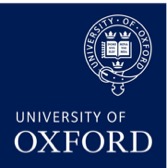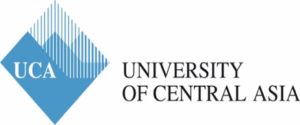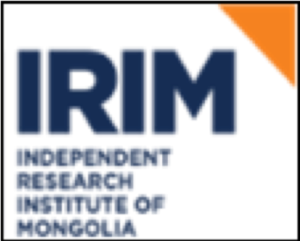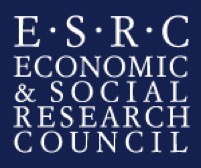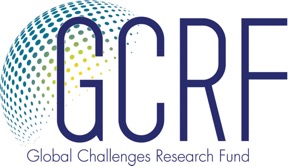A Report on Benefit Sharing, Conflict Resolution and Local Collaboration from the Gobi Framework Knowledge Exchange
A Report on Benefit Sharing, Conflict Resolution and Local Collaboration from the Gobi Framework Knowledge Exchange,
18 December 2018, Ulaanbaatar
Please find the PDF version of this report Knowledge Exchange Report_Dec_Final.
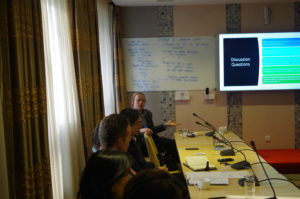
Summary of Event:
On 18 December, 2018, the Gobi Framework research team[1] gathered 15 experts from Mongolian Government, industry, NGOs, and universities to discuss challenges and opportunities to benefit sharing, conflict resolution and local collaboration in the extractive sector. Discussion focused on understanding to what extent mining companies and government adopted international frameworks such as the IFC’s performance standards, ICMM Community Development Toolkit or World Bank Mining Community Development Agreements, amongst others. After examining a case study from Peru, the group reflected on the types of conflicts occurring in the Mongolian mining sector as well as current information sharing practices between mines and local citizens. This dialogue revealed the varied perspectives and experiences of companies, NGOs and government actors in Mongolia and produced insights around best practices for advancing more inclusive infrastructure development in Mongolia and beyond.
This brief report summarizes the key findings from the discussion and provisional recommendations for policy and practice.
Key Findings:
- Heterogeneity of Practices
The Mongolian mining sector is characterized by a wide range of practices regarding stakeholder engagement and conflict mediation. Across the sector, developers and communities usually orchestrate engagement without reference to a particular standard or published protocol.
The IFC Performance Standards[2] are widely recognized in the industry, but do not provide specific guidance on structuring community-developer relationships. Rather, they detail desirable outcomes without making clear reference as to how to achieve them.
- Heterogeneity of outcomes and types of conflict
Participants reported a high diversity of outcomes in terms of community-developer relations. Some industry experts reported strong relationships of mutual trust and benefit sharing with communities, whilst other experts cited instances of protracted friction between developers and local stakeholders.
Conflicts generally clustered around environmental concerns around water availability and access, impacts on pasture, and concerns for safety. Additionally, forms of miscommunication were cited, especially related to perceptions of where responsibility
- Minimal oversight and reporting
Experts reported an industry status quo of pursuing stakeholder engagement on a largely independent basis. Government relations consist mainly of interfacing with soum-level administrators, while oversight from the national government is predominantly limited to the planning and permitting process.
Additionally, the extractive industry in Mongolia does not employ any regular channels for centralized reporting on stakeholder engagement, environmental protection, or political transparency. This limits the building of institutional knowledge or sharing of experiences across industry and civil society groups.
- Mistrust of civil society groups and political operatives
Industry representatives reported a widespread mistrust of anti-mining civil society groups. There is a strong perception that local NGOs are funded and recruited by non-local (and perhaps foreign) special interest groups to foment local resistance. Industry experts expressed that these NGOs seem uninterested in the prospects of mutually-beneficial development, and may “poison the well” of stakeholder negotiations.
Underlying this suspicion was the belief that the opaque funding streams supporting these local NGOs may be linked to political operatives rather than groups with bona fide concerns about the threats of development.
- Interest in government-led streamlining and standard-setting
Participants expressed interest in government-led mechanisms that could fill a perceived regulatory void. Industry representatives voiced confidence in the goodwill of the national government in setting standards that would assist with the legitimation of responsible industry operations whilst simultaneously safeguarding the needs of local communities. Additionally, there was interest in the creation of third-party monitoring to ensure reliable evaluations of environmental and social impacts. Participants also expressed the need for more public information sharing opportunities between industry and local citizens.
Recommendations:
The following recommendations are suggested for consideration:
- Provide a venue for more transparent sharing of conflict resolution and mediation practices that is readily accessible to both industry actors, civil society groups, and government officials. This should include a publicly available database of community-developer contracts across Mongolia.
- Solicit a broad base of input on possible legislation that could create a government mandate to scaffold proactive, inclusive, and transparent conflict resolution and benefit-sharing mechanisms, with cross-sector input (i.e. health, education, business management and anthropology).
- Train local citizen ‘champions’ who can facilitate communication and information sharing across groups.
The Gobi Framework research team will continue this dialogue with the Mongolian mining sector throughout the coming years. We encourage industry experts, civil society groups, and government officials to contact us with us their insights, comments, and suggestions for how to advance sustainable infrastructure development in Mongolia.
[1] https://gobiframework.ouce.ox.ac.uk/
[2]https://www.ifc.org/wps/wcm/connect/Topics_Ext_Content/IFC_External_Corporate_Site/Sustainability-At-IFC/Policies-Standards/Performance-Standards
